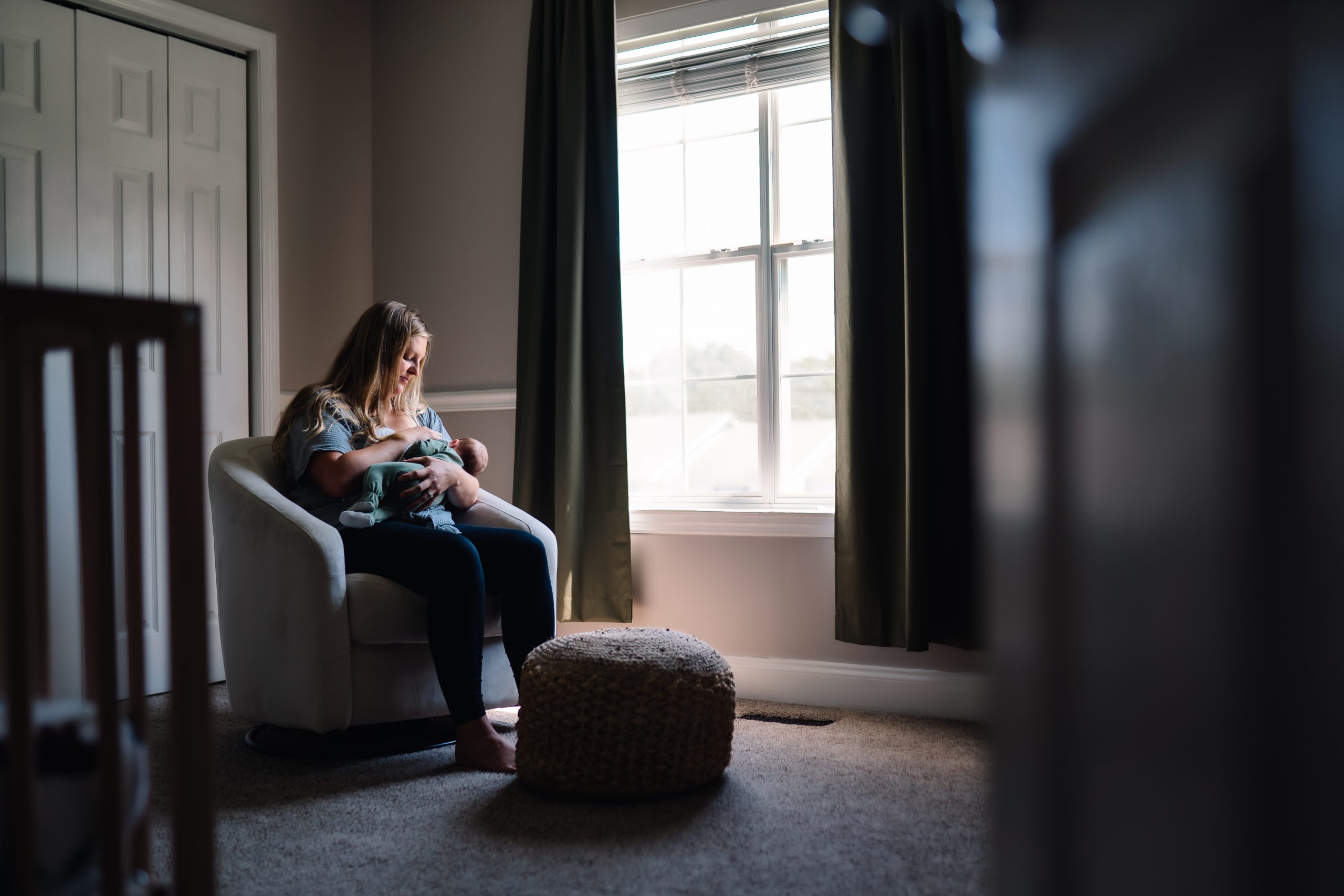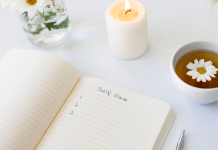
The conversation surrounding postpartum depression (PPD) and postpartum anxiety (PPA) has become more and more mainstream among social media, but there is still so much more we can say to help normalize these conditions. 10%- 20% of moms have or have dealt with postpartum depression within the first year of pregnancy or after our baby is born.
I would like to share my journey and some of the tools that have helped me, in hopes that they might help you as well.
Feelings of excessive guilt, worthlessness and hopelessness can be crippling. My journey with postpartum depression and anxiety began after my first pregnancy ended in a miscarriage. “Maybe it just wasn’t meant to be,” or “Maybe I’m just not ready to be a mother,” are just a couple of the lies I would say over and over to myself until I actually believed them. At times, those thoughts would spiral out of control; I knew then this was something different from grief and I didn’t know what to do. Thankfully, my husband could see through the brick wall I had built around my heart and together we were able to identify the problem and approached the solution together. Thus began a long road of figuring out how to combat my anxiety. The first thing that started to help me was exercise. I would climb, bike, or run nearly every day, and every day, the weight I was carrying around in my mind was getting lighter.
It turns out that mental illness is a constant battle and by the time I was pregnant with our daughter, I was filled with so much fear — PPD and PPA found their way back in again.
This time, I was ready and had my regimen to combat those feelings. Or so I thought. After the traumatic birth of our daughter, I was so defeated. Even now it feels dramatic to describe her birth as traumatic. After all, both of us were physically healthy, but mentally I felt out of control and as if no one was truly hearing me. Exercise alone wasn’t working anymore and it was a lot harder to get out whenever I wanted to take care of myself. Of course, I was trying to figure out how to care for my newborn. It didn’t take long before my husband and I knew we had to make some conscious changes. We started to build in time for self-care (for both of us) and lean on the support of our family. Once a week I took a dog agility class with our Australian Shepherd. Those Wednesday evenings alone, with my pup, doing something just for me was a complete game changer. It helped me reset and recharge so that I could be a better mom to our daughter. My parents had also relocated from our home town in Indiana and now live close by, which gives my husband and I the opportunity to go out on our own regularly.
Two and a half years later, we decided we were ready to put our hearts back out there and try for the last baby in our family. At that time, mentally, I felt the best I had in years. I had implemented a prayer and meditation routine into daily life that was fantastic! Pregnancy with my son was vastly different this time. I wasn’t scared, I knew what I wanted, and was so blessed to deliver him the way I wanted. It was beautiful and magical, and an experience every single mother deserves to have. I wrote affirmations in my journal and prayed constantly that I would have the strength to advocate for myself and my birth wishes. But PPD was still lurking around the corner.
A few months after he was born I began to feel that familiar weight. Juggling our toddler and a new baby is challenging of course, but overwhelm, guilt, and worthlessness were baring down with each passing day. The routine and flow I had worked so hard to build, was suddenly torn down. With the help of our family and therapy, in addition to exercise, self-care, and prayer, each day gets better and better.
Below, I have compiled a list of things that have helped me get through those seasons. Please know that there are even more resources and medication available (even nursing mothers) that can change everything, so if you’re struggling, there is something that can help!
1. Exercise
Running helps me reset and regulate my mental state, and of course, the added physical benefits are great too. But even just getting out for a 10 minute walk can make all the difference. If there are other physical activities you enjoy, do those! Or, turn on an exercise video, and escape to the garage to get your sweat on.
2. Built in Self-Care Time
Come up with a system with your partner or babysitters where you can get out and have time alone to do whatever you desire. For me, that’s going to the climbing gym alone, trail running somewhere nearby, or just browsing the aisles of Target by myself. Don’t use this time to run errands; this is your time to be away from family duties.
3. Therapy
Better Help online therapy has also been a game changer for me. Every two weeks, I meet with my therapist via phone call or live message and it’s amazing. She has helped me come up with coping strategies when I feel like the house is out of control or when I am particularly overwhelmed by the amount of noise that a toddler and baby can produce. I cannot recommend this service enough for both its convenience and quality.
4. Family Support
Talk to your family or a close friend about what you are thinking and feeling. Be vulnerable and real with just one person within your circle that you can trust. They want you to be the best parent and version of yourself possible. Also ask for help! Believe me when I say that’s the hardest part. But seriously, just ask. People close to you will be happy to help with the kids to allow you to get in your self-care time or to simply lend a listening ear.
5. Prayer and Meditation
Quiet moments in meditation or prayer can help ease tension and ground yourself for the afternoon crazies to get you through to bedtime. One way I have enjoyed this is by using the Five Minute Gratitude Journal nearly every day.



















